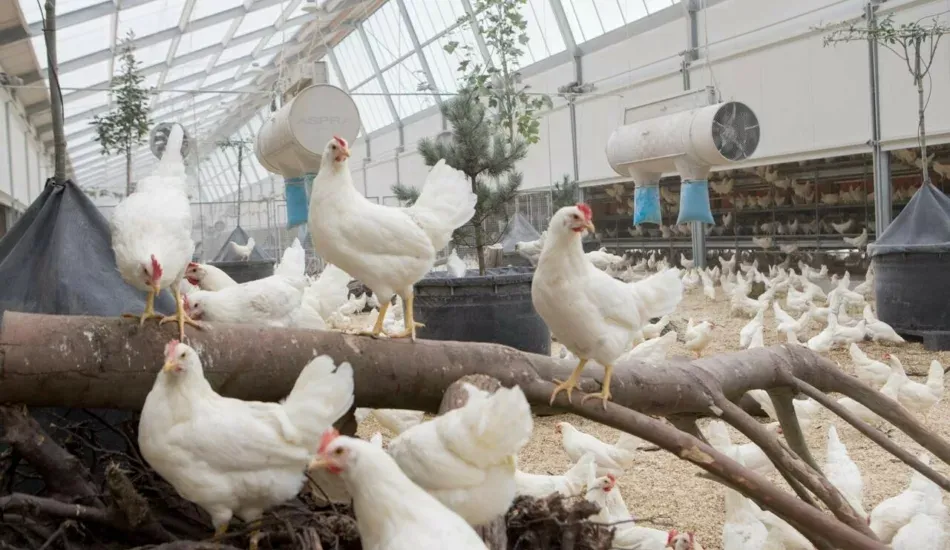What do chicken manure and bread have to do with each other? Kipster, known for its eggs in blue boxes, is going to use the manure to feed Dutch grain fields. In this way, it wants to further close its own cycle.

Circular farming means reusing all flows as much as possible. Ideally, nothing is wasted. The Dutch company Kipster is taking the next step to close its cycle: chicken excrement is used to fertilize fields. The grain that grows on these fields is processed back into whole grain bread. That bread will be sold by supermarket chain Lidl starting in September.
.One of the arable farmers who will work with the manure is Otto Knottnerus. "Chicken manure has a high nutritional value. It improves soil structure, increases fertility and keeps the soil stable." Whereas his harvest was previously processed into animal feed, it will now be baked into bread. "That it is being applied in food for people, I see as a step forward."
Third stable in Venray
.The brand has also added a new stable. Kipster already had two stables in the Netherlands: in Beuningen and Venray. The third stable is in Barneveld. There, 40,000 chickens will lay eggs for Kipster. According to the Kipster concept, the chickens will be given a wooded environment because they are naturally forest birds. The biggest CO2 gain is achieved by feeding the chickens with waste streams released from food production. So no farmland needs to be set aside to grow food for these chickens. The farms are powered by solar panels. A variety of systems are used to disperse a minimum of particulate matter, according to the company. In the indoor garden, about 40 percent of fine dust is captured. Furthermore, eggs are packed at the farms and delivered directly to Lidl. This saves transportation costs.
More Chicken Star farms
.The third barn was not built recently, but transformed into a Kipster farm. If it is up to Lidl and Kipster, the number of farms will be further expanded to ten in the coming years. The preference then is to convert mainly existing barns. "The process for new projects is long and the permits are stuffy. We have to be creative. That is why we are focusing on existing farms and poultry farmers," said Quirine de Weerd, responsible for Lidl Netherlands' sustainability strategy.
"The demand for the eggs is already there," believes Kipster founder Ruud Zanders. "We are always sold out. The people at Lidl once said, Ruud, if you were a normal supplier, we should have taken action. Because every supplier who causes empty shelves, we can't build on that. With this expansion we can supply a lot more eggs. I am happy that we can continue and that Kipster's share is growing."
Pigs
.The Kipster concept will soon be applied to pigs. An animal-friendly and sustainable pigsty is being built in Brabant. This consists of a covered part, an exercise area and a pasture where the pigs can exhibit their animal behavior. There is a mud bath and a playground. There will also be a real toilet. "A pig is an intelligent and housebroken animal. You can train them well, so that the pig defecates and pees in separate parts of the pen. That provides a huge emission reduction. I have been doing research into this on a small scale with a few animals since 2015," Kees Scheepens previously told varkens.nl. Pork is then produced under the name Pigster. Next year it should be on Lidl's shelves.
Source: change.inc